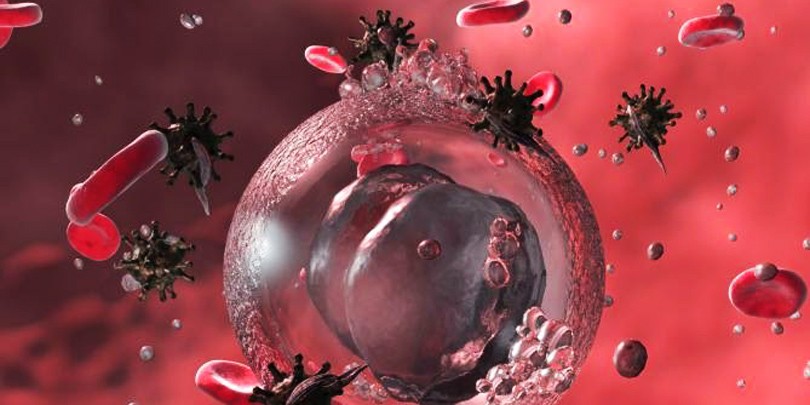What is histamine ? What does the histamine intolerance ?
Histamine is a produced by the body and abroad provided by the power. This section informs you about foods particularly rich in histamine and disorders may cause.
Histamine belongs to the Group of biogenic amines. Some foods, expired food products and food produced by microbial fermentation (e.g.. Sauerkraut) contain large amounts of histamine.
What is the role of histamine ?
The main function of histamine is to destroy foreign substances. Histamine is also released during allergic reactions; She is responsible for sufferers and asthmatics of troublesome symptoms or even very serious.
Other essential properties of histamine :
- increases the power and frequency of the heartbeat (by the release of adrenaline)
- contributes to the outbreak of vomiting
- regulates the sleep-wake rhythm
- cut appetite
- contributes to the regulation of body temperature, blood pressure and the sensation of pain
- contributes to the production of gastric acid and the functioning of the gastrointestinal tract
- regulates hormonal balance
- is a brain neurotransmitter
What does the histamine intolerance ?
In normal times, histamine is destroyed in the body under the action of an enzyme called “diaminoxydase”. For sufferers of histamine intolerance, the activity of this enzyme is reduced. Therefore, histamine produced by the body and that absorbed by the power supply cannot be destroyed, or only partially, What causes disorders.
What people are affected ? What are the causes ?
Histamine intolerance affects especially women from 40 years. The risk is especially high for people suffering from inflammatory disease of the intestine or a cross-food allergy. Very few people are suffering from a congenital enzyme deficiency.
An excess of histamine can be caused by foods that are themselves rich in histamine or the "histamine liberators" which induce secretion of histamine by the cells of the body. Result of allergic disorders.
The rapid increase in the rate of histamine may also be caused by :
- physical effort
- emotional stress suddenly
- hormonal fluctuations: women often develop allergic reactions prior to their rules
- infectious diseases
- certain medications
Histamine-rich foods :
The histamine content varies with the freshness, the storage conditions and the mode of manufacture of food. The rule is more a food matures, more its histamine content increases.
Non processed foods generally have a very low content of histamine. However, it can increase by fermentation, ripening or storage. This also applies to foods perishable or stored inappropriately such as:
- alcoholic beverages (particularly red wine, certain types of beer, sake)
- cheese (long refined)
- the sausage: raw sausage, salami, cervelat
- the meat: pork and beef liver (very high content), Parma ham, the Mounties, viande des Grisons, Bacon (histamine increases with maturation)
- fish and seafood (including the mackerel, anchovies, herring, tuna, Trout, the fish marinade, marinated fish)
- the yeast
- coffee, cocoa powder, chocolate and chocolate products
- soy and tofu products
- wheat flour
- vegetables: Sauerkraut, vegetables pickled in vinegar, vegetable Marinades
- fruit: Strawberry, Raspberry, Kiwi, PEAR, banana, Citrus, Pineapple; The histamine content increased during their transformation
- all kinds of nuts
- as well as flavour enhancers and colorants
Among these foods, There are those that increase the release of histamine by the body (because they contain the histamine liberators) and those that block the enzyme diaminoxydase. This list is not exhaustive. It was established based on the experience of patients and must be completed by the persons concerned.
What disorders cause histamine intolerance ?
Disorders are multiple. The worst is anaphylaxis (cardiovascular collapse) (CF. Food allergy)
Ingestion of histamine-rich foods can cause the following symptoms :
- skin: redness, itching, urticaria (itchy plaque formation)
- central nervous system: headache, feeling of warmth, migraine, dizziness
- respiratory tract: nasal discharge, swelling of the nasal mucosa, breathing difficulties, bronchial asthma
- gastrointestinal tract: bloating, diarrhea, nausea/vomiting, abdominal pain
- cardiovascular system: voltage drop, palpitations, cardiac rhythm disorders, tachycardia
- Dysmenorrhea (disorders of the menstrual cycle)
Swelling of nasal mucosa following the consumption of red wine or cheese is also typical, because these products are very rich in histamine and contain a lot of histamine liberators.
Source : http://www.santeweb.ch/


[…] Reason for recall : This product is likely to contain histamine. […]